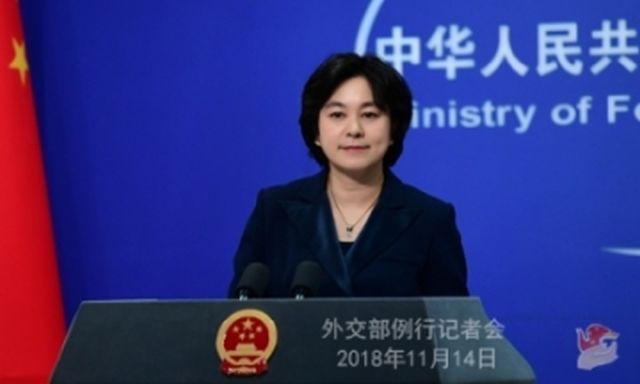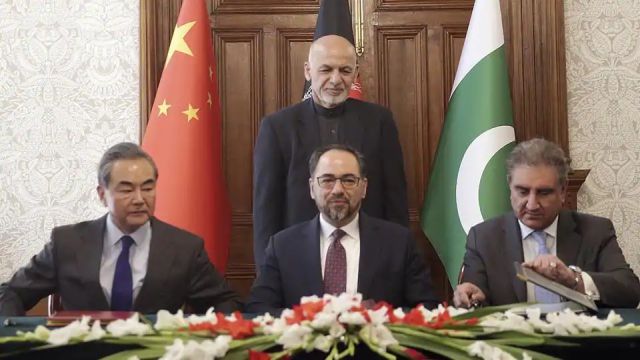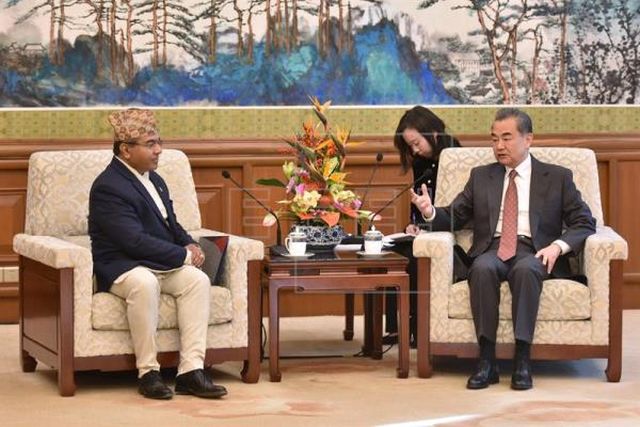
by Editor | May 25, 2021 | World
 By Gaurav Sharma,
By Gaurav Sharma,
Beijing : The new-generation much swifter lightweight battle tank, which could easily be deployed in Tibet in the event of a conflict with India, has been handed over to the People’s Liberation Army (PLA).
The Type 15 light tank, which has better mobility than other armoured vehicles, was displayed at an exhibition in Beijing last month on the occasion of the 40th anniversary of China’s reform and opening up.
The Chinese Defence Ministry has confirmed that the tank has been put into service.
“We have made major achievements in equipment build-up and blazed a path of Chinese characteristics in weapon and equipment development. As for the Type 15 light-weight tank you mentioned, according to my information, it has been equipped to our troops,” said a statement by China’s Defence Ministry’s spokesperson Colonel Wu Qian last week.
According to military experts quoted by the South China Morning Post, the tank will enhance PLA’S combat readiness and it could be quickly deployed in sensitive regions such as Tibet and the plateau border area if a dispute broke out.
Tailor-made for mountainous areas and over rugged terrain, the tank is equipped with a 105mm main gun that can fire armour-piercing rounds and gun-launched missiles.
The Type 15 has an engine capable of 1,000 horsepower and is significantly lighter than the PLA’s other main battle tanks in service, weighing about 32 to 35 tonnes.
China’s Tibet borders Indian state of Arunachal Pradesh which Beijing claims as South Tibet.
In 2017, the militaries of both countries were locked into their worst stand-off in decades with China conducting several live drills in Tibet.
—IANS

by Editor | May 25, 2021 | Commodities, Commodities News, World
 Beijing : China on Monday said it would lower provisional tariffs on over 700 foreign products, including certain high-tech items, from early 2019, the media reported.
Beijing : China on Monday said it would lower provisional tariffs on over 700 foreign products, including certain high-tech items, from early 2019, the media reported.
Citing China’s Finance Ministry, the state-run Global Times reported that the government would impose “zero tariffs on ingredients for livestock feeds and certain medicines”, including manganese slag.
The tariff reductions will also be imposed on aircraft engines, robots and other advanced equipment.
The provisional tariffs were fixed by the authorities to reduce entry barriers on some products with strong domestic demand in the Chinese market. It was being done as part of the country’s push to expand imports, said the Global Times.
The Ministry said that from July 1, 2019, Beijing will also impose most-favoured-nation rates for nearly 300 information technology products.
The report cited by Efe news, however, did not specify if these new tariffs on the imports will affect the products from the US, the country with which China is involved in a trade war.
US President Donald Trump and his Chinese counterpart Xi Jinping on December 1 reached an agreement on 90 days of truce, during which the US agreed to leave tariffs on Chinese products at 10 per cent — valued at $200 billion — from January 1, 2019 and not raise it to 25 per cent taxes as it had earlier threatened.
—IANS

by Editor | May 25, 2021 | Business Summit, Events, Social Round-up, World

Hua Chunying
San Francisco : Five countries – Australia, Canada, Japan, New Zealand, and the UK – have joined the US in accusing China of stealing trade secrets of major companies around the world through its support of a hacker group known as Advanced Persistent Threat 10, or APT 10, a media report said.
The official statements from the five countries are on the supposed involvement of the Chinese Ministry of State Security (MSS) in supporting the activity of APT10, CNET’s sister site ZDNet reported on Friday.
The German government also issued a warning on Thursday to local companies about the possibility of their Cloud providers having been hacked, the report said.
The warning came after the US Justice Department charged the two Chinese nationals on Thursday of conspiring “to commit computer intrusions against dozens of companies in the United States and the world” for economic espionage.
China on Friday strongly denied the cyber attack charges by the US and its allies, accusing Washington of making “unfounded” allegations that the Chinese government was behind global hacking.
Foreign Ministry spokesperson Hua Chunying asked the US to withdraw the accusations “as soon as possible” and not to prosecute suspected Chinese hackers, Zhu Hua and Zhang Shilong, Efe news reported.
Hua said China lodged a formal protest with the US and that Beijing “will take the necessary measures” to safeguard its own cybersecurity and interests.
The US government earlier called on China “to act responsibly” in cyberspace after detecting an alleged broad cyberattack campaign against intellectual property and “sensitive” trade data in the US, Europe and Asia.
—IANS

by Editor | May 25, 2021 | Muslim World
 Kabul : Pakistan, China and Afghanistan signed a Memorandum of Understanding (MoU) vis-a-vis anti-terrorism cooperation during a second trilateral ministerial dialogue in Kabul on Saturday.
Kabul : Pakistan, China and Afghanistan signed a Memorandum of Understanding (MoU) vis-a-vis anti-terrorism cooperation during a second trilateral ministerial dialogue in Kabul on Saturday.
The MoU was signed by Pakistan’s Foreign Minister Shah Mehmood Qureshi and his Chinese as well as Afghan counterparts Wang Yi and Salahuddin Rabbani, respectively. The signing of the document was witnessed by Afghan President Ashraf Ghani.
Speaking at the trilateral dialogue, Rabbani said that collective efforts were required to address the common challenge of terrorism. “We desire to strengthen our relations with Pakistan,” he said and also appreciated the Chinese One Belt One Road initiative.
Qureshi, during a joint press conference, called for a joint strategy to eradicate terrorism from the region. He said he was visiting Kabul to bridge the trust deficit between the two countries, the Express Tribune reported.
“We all want peace and stability in Afghanistan,” the minister said, adding that Pakistan will continue to play facilitative role in Afghan reconciliation process.
“We will do everything to support the growing momentum towards reconciliation provided others play their due role and share responsibility and create an enabling environment towards that end.”
Calling Afghanistan and Pakistan as “friends of China”, Wang said that Beijing will extend “every possible cooperation to build trust and confidence between the two countries”.
China will also assist in establishing connectivity projects including a rail line between Peshawar, Kabul and Kandahar, he said, adding that Beijing “desires to make Afghanistan a part of the China Pakistan Economic Corridor”.
“We support an Afghan-led and Afghan-owned peace process,” Wang said.
This was the second meeting of the three foreign ministers after their kick-off meeting in Beijing last year.
—IANS

by Editor | May 25, 2021 | World

Nepal’s Foreign Secretary Shankar Das Bairagi (L) meets with Chinese Foreign Minister Wang Yi
Beijing : Nepal’s Foreign Secretary met China’s Foreign Minister here on Thursday to boost bilateral cooperation and discuss issues of mutual interest, officials said.
Shanker Das Bairagi met Wang Yi at the Diaoyutai Guest House in Beijing ahead of the 12th meeting of Nepal-China Bilateral Consultation Mechanism that was held later in the day, the Nepalese Embassy in Beijing said in a statement.
“The two sides held substantive and fruitful discussions on the entire gamut of Nepal-China relations and reviewed the status of bilateral cooperation,” the Embassy was cited as saying by Efe news.
During the meet, the two countries agreed to boost bilateral relations through cooperation in various sectors, including connectivity, infrastructure development, trade, investment and energy.
They also agreed to expedite implementation of past agreements and projects under bilateral cooperation agreements.
China expressed its willingness to lend support to Nepal’s development efforts, according to the statement.
Beijing has been trying to increase its influence in the landlocked Himalayan nation — which has traditionally been dependent on India for trade and economic support — through investments in infrastructure and financial aid.
—IANS





